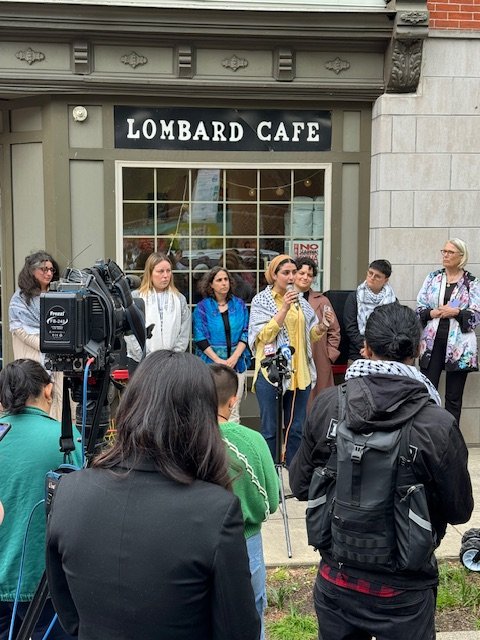Next time you sign a political petition, make sure the signatures are set to private.
This past weekend, an online network of Trump supporters built a document detailing the names, addresses and phone numbers of thousands of anti-Trump activists, building off of an anti-fascism petition signed by the activists themselves.
The document was shared across 4chan, 8chan and Reddit, where the original poster called the Refuse Fascism petition “a wonderful gift.” All three message boards host large pro-Trump and alt-right communities.
“They have created a list of names for /pol/ to crawl through and cross check all the hundreds of antifa sympathizers,” user kanuke7 wrote. “Please! Have a gander and we may have some progress is [sic] exposing the scummier [sic] that is leftism.”
Antifa refers to people and organizations opposed to fascist ideologies, and stands for “anti-fascist.”
The document was initially published to Discord, a Slack-like chat app for gamers, on a server for Trump supporters that boasts more than 2,000 active users, Buzzfeed News reported.
The document has since been removed, but not before it was archived by Buzzfeed and others across social media channels. It contained personal biographical information on thousands of so-called antifa activists. Some entries were extremely detailed and included information about hobbies and work, while others were vague and incomplete, Buzzfeed reported. It also included instructions on how to add information.
The practice of finding and publishing personal information against opposition activists is nothing new for online alt-right communities. It even has a name: doxxing.
Doxxing is the internet-based practice of researching and publishing personally identifiable information about others. People find this information by searching publicly available databases like social media, or through hacking. The information can be used to harass people in many different ways: extortion, online shaming or vigilante justice to name a few.
Doxxing has been used to intimidate everyone from journalists to members of the KKK. The practice first hit the mainstream vocabulary after reports of attacks by the alt-right gamer community during Gamergate where female game developers and journalists were targeted by vicious online attacks.
Now, Trump supporters have used the tactics to intimidate opposition activists.
Last month, a California woman became the latest victim of right-wing doxxing.
Louise Rosealma traveled to Berkeley to participate in a counterprotest against a planned white nationalist and neo-Nazi demonstration in the city. When violence erupted, photos and video of men attacking the 5-foot-tall, 95-pound Rosealma went viral, including footage of well-known white supremacist leader Nathan Damigo hitting her in the nose. Though she escaped the protests with just a few bumps and bruises, the attacks continued online on social media via memes and threats, CBS reported.
Other examples of doxxing by pro-Trump and alt-right groups include attacks on writers like Bethany S. Mandel and a university professor who helped organize a peaceful resistance protest.
























